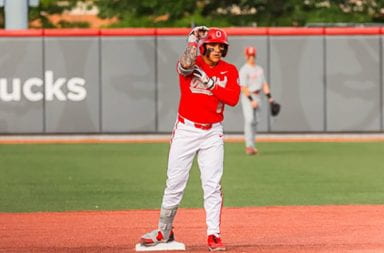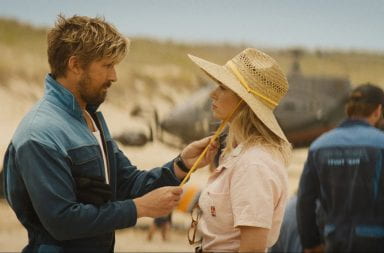Aroldis Chapman walked into the visitor’s dugout Monday at Huntington Park a few hours before a game against the Columbus Clippers with a toothpick in his mouth and a gold chain around his neck. Behind the smile and glamorous appearance is a 22-year-old man trying to find his way into major league baseball and American culture.
Chapman left Cuba on July 1, 2009. He left his mother, father, two sisters, girlfriend and newborn child behind to pursue his dream of pitching in the major leagues.
At 21 years old, Chapman was thrust into a new world surrounded by a language he did not know and a culture he did not understand.
Before coming to the United States, he petitioned major league baseball to become a free agent. After much hype and demand for the Cuban phenomenon, the Cincinnati Reds signed Chapman to a six-year, $30.25 million deal on Jan. 10, 2010.
When spring training began, Chapman hoped to make the major league club in Cincinnati, but after a back injury hindered his progress for a couple of days, the Reds decided to send Chapman down to their AAA-affiliate, the Louisville Bats.
His demotion to the minors has not deterred him.
“I would have liked to break into camp with the team, but being here has made me happy as well,” said Chapman, who has trainer Tomas Vera translate his Spanish to English. “I am happy here and I know I have to work and make the adjustments on all my pitches.”
While Chapman works in the minors to develop his pitching skills, he is slowly learning the details of American baseball.
“For example, we had our first game in Toledo,” said Rick Sweet, Louisville’s manager. “He wanted to know who we played the next day. He didn’t understand that we play the same team four days in a row. We gave him a schedule, which told him we go to this city, and each city has its own team.”
Sweet acknowledged that Chapman is a work in progress.
“He handles [pressure] very well,” Sweet said. “He needs to learn the game of baseball, our style. It is different. We need a ton of work on the fundamentals because I don’t think they’ve done that in Cuba. He’s got a lot to learn and he’s handling it well.”
American major league baseball is fundamentally and organizationally different from Cuban baseball.
The Cuban season is only 90 games. In the minor leagues, the Louisville Bats are scheduled to play 143 games, and all major league teams play 162 games. This means that Chapman has to prepare to make anywhere from 10 to 15 more starts than usual. In a league that has grown more conservative with pitch counts and innings pitched, Chapman does not seem worried.
“I don’t have any concerns about my conditioning,” Chapman said. “I have been preparing really well. I have been working hard and I don’t want to have any problems. I know this is a long season, but I know I will be ready and OK.”
Chapman, along with Washington Nationals prospect Stephen Strasburg, has been the focus of much media attention. Both pitchers have been clocked at over 100 mph on multiple occasions, and their potential and talent level is comparable. But, as Strasburg can just concentrate on baseball, Chapman needs to learn fundamentals as well as understand the American way of life.
“The hardest part [in America] has been off-the-field things,” Chapman said. “I have to be able to adapt and I am going through that. Baseball has been normal for me. I have more problems adapting outside [baseball]. There has been a lot of stuff to learn.”
Though Chapman will have to battle off-the-field perplexities, he shouldn’t have a problem transferring his previous pitching success to America.
In his professional debut on Sunday, Chapman pitched 4 2/3 innings, giving up one unearned run, while striking out nine batters. In addition, the stadium radar gun showed he hit 100 mph five times.
“I don’t know if I have seen that total in my career,” Sweet said.
While integrating himself into American society has been difficult, Chapman feels this is the right thing to do. The only problem is that it comes at a personal price.
“I feel great. I am playing on the best baseball [stage] in the world,” Chapman said. “This is what I really want and that makes me feel gracious and happy, but the day I will be completely happy is when I have my family with me.”


